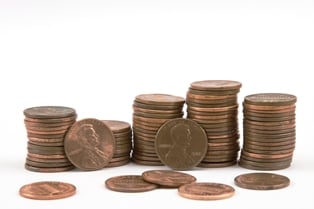When it comes to penny stock investing, the scams get mentioned more often than the big winners.
 That's with good reason. There are a number of penny stock scams designed to separate investors from their hard-earned money.
That's with good reason. There are a number of penny stock scams designed to separate investors from their hard-earned money.
What penny stock investors really want to find are those little-known companies set to soar - and they are out there. When companies hit it big, either with a new product or following regulatory approval, their stocks can take off.
However, penny stock scammers understand that all too well, and devise schemes to capitalize on investors who don't do the right research to separate the legitimate companies from the traps.
To make sure you don't get suckered by professional scam artists, we put together the five very common penny stock scams to look out for as you hunt for the next big winner (which we'll also help you find).
The Five Biggest Penny Stock Scams on the Market
Pump-and-Dump: The "pump-and-dump" is arguably the most famous and prolific penny stock scam investors encounter. Essentially, promoters hype up investor sentiment in a little-known or unknown stock. New investors rush in, thus "pumping" up its price. Once shares are inflated, insiders then "dump" their shares at a huge profit and leave investors holding the bag.
The promoters behind pump-and-dump schemes use a variety of tactics to spread the word about these penny stock companies, including: fake press releases, aggressive phone sales, or email campaigns. Whatever the tactic, promoters will inevitably offer investors an inside tip on a stock that is about to take off. For those who unfortunately buy into the scam, they can see prices skyrocket, only to crash soon after.
This is why it's important for investors to research the company behind the stock - has it made money? What products does it make/sell? What's the outlook for the sector? Know who you buy.
Short-and-Distort: The "short-and-distort" scam works like a reverse pump-and-dump. Schemers short-sell a stock and then spread false and damaging rumors about the company. At that point shares tank and the original investors hold a losing stock. The short-sellers, of course, have made money on their short positions in the company. One of the most frequent allegations used by short-and-distorters is that the company in question is facing a massive class-action lawsuit.
While this scam isn't exclusive to penny stocks, damaging news can have a much harsher impact on a small-cap companies than on a medium-caps or large-caps. As always, investors should look at the strength of a company before buying into a stock. If a company's business isn't established/successful enough to weather false allegations, it's best to avoid the stock completely.
Money Morning Members - keep reading for three more penny stock scams to watch out for.
Offshore Scams: The Securities Act of 1933 was created following the stock market crash of 1929 and states that all securities being used for commerce must be registered with the U.S. Securities and Exchange Commission (SEC). However, "Regulation S" of the act states that companies operating outside of the United States do not need to register shares when they are selling to offshore investors. And these offshore investors are the ones who run the scam.
They purchase unregistered and cheap shares of the international company from their offshore location. At this point, they pose as international investors themselves and sell the shares to investors in the United States. These con artists sell the stock to U.S. investors at an inflated price and bank the difference. However, this influx of unregistered shares in the U.S. market causes the company's stock price to drop. The scammers make huge profits, while the retail investor watches their investment dwindle rapidly.
"No Net Sales" Scams: This is a simple, but ruthless scam. Through this scheme, fraudulent company officials sell shares of a company and enforce a policy where investors cannot resell the shares for a certain period of time.
Why would anyone buy a stock under these conditions?
In the buying process, the company officials fool the investor into thinking that there is huge demand for these shares and the price will continue higher. Unfortunately, when the SEC investigates and shuts down these companies, investors are left with nothing.
A great example of this scam was the 2009 case against Sky Capital, a New York brokerage firm that was investigated for $140 million worth of fraud. Six executives from the company took proceeds from the scam to travel and live lavishly. Investors lost everything.
Mining Scams: The allure of precious metal mines has led to some of the largest securities scams in history. The biggest example is that of Bre-X in the mid-1990s. The company's founder, David Walsh, claimed his company had found a massive gold play in Borneo, Indonesia. In 1995, the company estimated that the estate it owned had 30 million ounces of gold. That figure continued climbing to 70 million ounces by 1997.
The company reached a valuation of $4.4 billion USD by 1997. Its shares, which were originally in penny stock territory, reached $280 Canadian dollars each.
The only problem is that there wasn't anywhere near that amount of gold in the Borneo property. In fact, there wasn't much there at all. Once the fraud was exposed, the company filed for bankruptcy and most investors lost everything.
Don't get fooled by penny stock con artists. There are countless penny stock schemers out there, but that's no reason to avoid the market altogether. Here's how you can find the best, legitimate penny stocks - the kinds that can bring you triple-digit gains before they even hit Wall Street's radar...
Share this article on Twitter @moneymorning and @KyleAndersonMM using #PennyStocks.
Related Articles:
- Financial Times: Sky Capital Staff Face $140M Fraud Charges
- CBC: Bre-X Gold Fever


